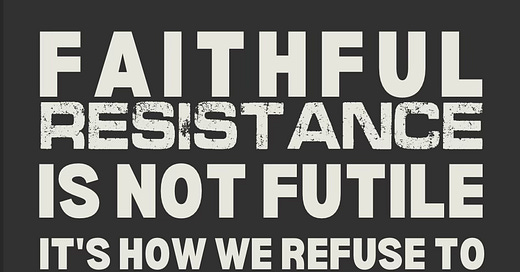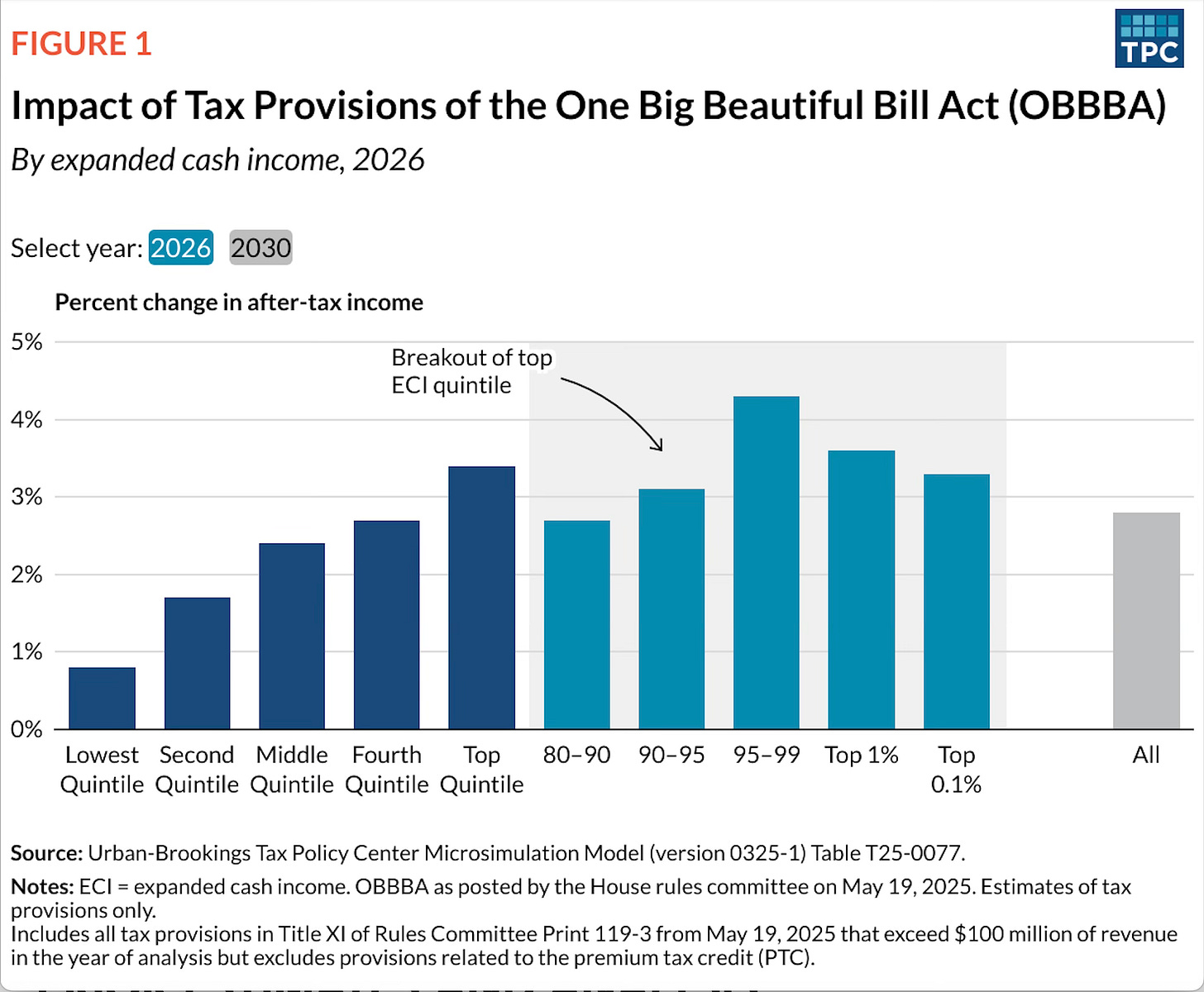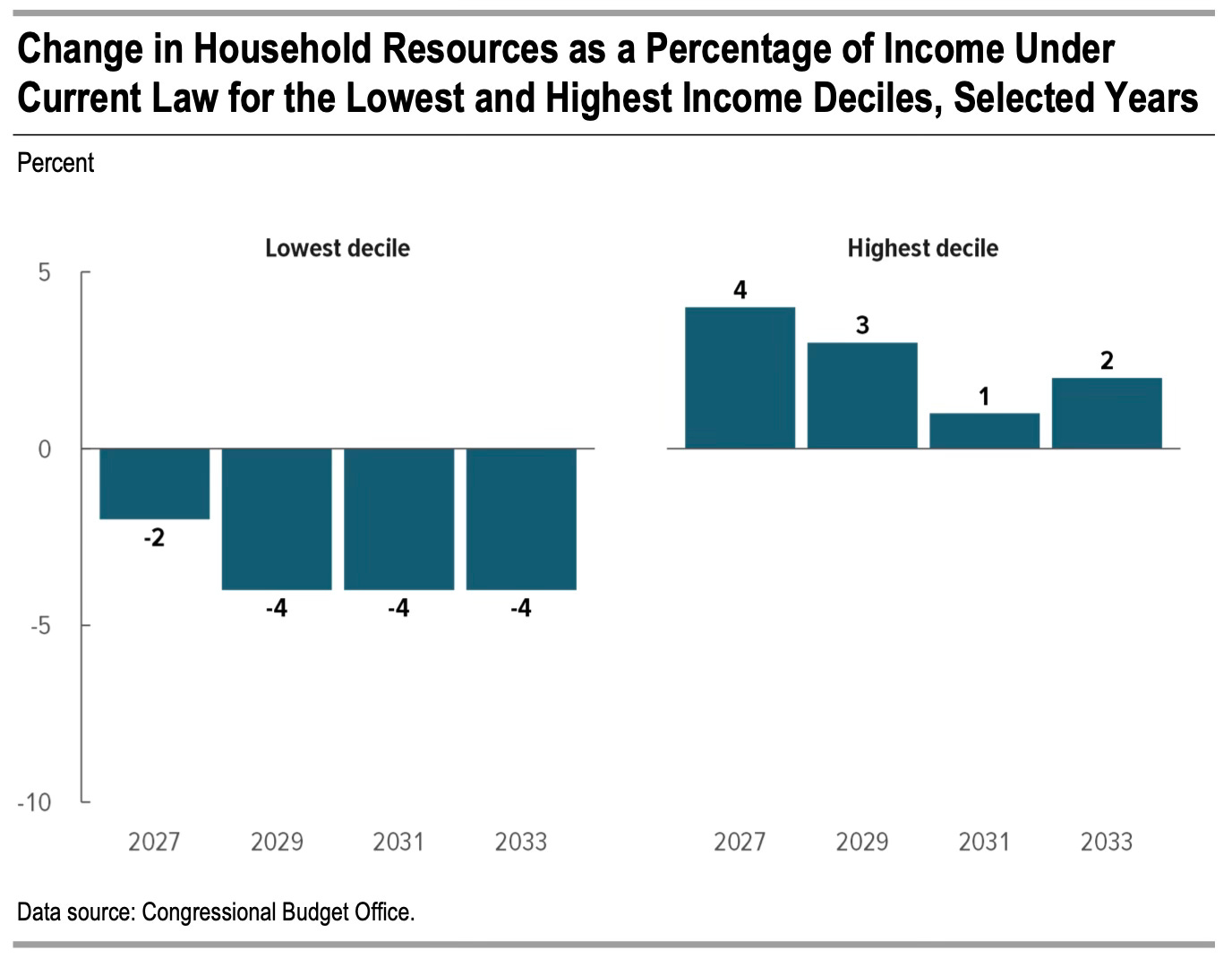One of my dialogue partners during my PhD work was William Stringfellow. Lately, I’ve returned to his writings for wisdom amid these turbulent political times. Democracy feels fragile. Checks and balances are eroding. Yet some urge unquestioned submission to “governing authorities,” citing Romans 13 as if that ends the conversation.
But this oversimplifies Scripture. Romans 13 affirms legitimate authority only when it fulfills its God-given vocation. What then when government fails that calling? What do we do when the Spirit moves us to resist?
Peter understood this when he defied the Sanhedrin, the highest court of his time. If we are to be faithful witnesses to Jesus, we must listen to the Spirit and engage in faithful resistance.
Stringfellow writes:
“The whole notion that the Bible must be homogenized or rendered consistent is a common academic imposition... [It] denies the most elementary truth of the biblical witness, that it bespeaks the dynamic and viable participation of the Word of God in the common events of this world... Any efforts to read the Bible as a treatise abstractly constructed or conformed usurps the genius of the Bible as testament of the Word of God active in history. If the biblical witness were strictly consonant, after the mode of ideology or philosophy, the mystery of revelation in this world would be abolished…” (Conscience and Obedience, p. 10)
In other words, ignoring Scripture’s context, or the context in which we read it, turns text into pretext. This is crucial when we consider Romans 13 alongside Revelation 13.
In Conscience and Obedience, Stringfellow wrestles with this tension. Christians must use conscience to discern when obedience is faithful, such as when the state fulfills its vocation to protect life, as in Romans 13, and when resistance is required, such as when the state has become the Beast demanding idolatrous allegiance, as in Revelation 13.
The Fall Is Comprehensive
The Fall touches everything: people, institutions, powers and principalities. All live estranged from God and one another. Stringfellow urges us to “view the world with unflinching, resilient realism.” To minimize the Fall is to live in illusion; to see it clearly opens the way to redemption.
The principalities and powers were created to serve life, but they too are fallen. Revelation 13 shows what happens when government exalts itself, blasphemes God, and wages war on the vulnerable. Not every government becomes the Beast, but any government that serves its own power and crushes the weak instead of protecting life and justice is aligned with it.
Stringfellow reminds us:
“The fall implicates the whole of creation, not human life alone, and not human beings uniquely, and further, that each and every creature or created thing suffers fallenness in its own right.” (Conscience and Obedience, p. 64)
So, the question is not simply “obedience or resistance,” but, is this government fulfilling its vocation to protect life and uphold justice, or has it become the Beast, demanding allegiance that belongs to God alone?
Power and Legitimacy
Romans 13 teaches all authority comes from God, but it is not absolute. Governments are legitimate only when they fulfill their divine vocation: protecting life and justice. When they betray this, they forfeit moral legitimacy.
As Stringfellow states:
“Vocation issues from the Word of God. Still more precisely, in the biblical description of creation, the vocation of God becomes definitive of the vocation of human life and of that of institutions and nations and other creatures and of all things whatever.” (Conscience and Obedience, p. 29)
Governments that oppress the vulnerable, trample justice, and demand uncritical allegiance become agents of death. In such cases, resistance is not only justified, it is required.
This framework clarifies what faithfulness demands in political crisis.
Our Current Crisis
The Supreme Court’s recent ruling granting former President Trump immunity for official acts has opened doors to abuses of power. Since then, we’ve seen politically motivated executive actions: attacks on the press, retaliation against universities and legal bodies, and detainment without due process. These are not abstract legal issues; they reveal a state abandoning its vocation.
In such a context, the church’s task is not passive submission, but discerning resistance. When authority no longer serves life, it aligns with the Beast.
Ethics as Vocation
For Stringfellow, ethics is not a static code but a living vocation. The central question is: Are we serving life or death?
Governments, like people, are called to serve life. When they do, they are to be obeyed. When they betray that calling, resistance is an act of fidelity to God.
Woe to the Rulers of This Age
Stringfellow insists the church’s political task is advocacy, especially for “every victim of the rulers of the age” (Conscience and Obedience, p. 94). Scripture consistently points to our need to care for the poor, the foreigner, the orphan, and the widow. These are the very one’s governments should protect.
The recently passed legislation, cynically dubbed the “Big Beautiful Bill,” is anything but beautiful. It slashes $500 billion from Medicare, $700 billion from Medicaid, and $267 billion from food assistance (SNAP). According to the Congressional Budget Office, 10.3 million people are projected to lose Medicaid coverage within the next decade, with at least 7.6 million more becoming uninsured in that same time. Meanwhile, the nonpartisan Tax Policy Center reports that those earning the most would receive the largest tax breaks, while the bill adds an estimated $3.8 trillion to the national debt. The legislation is expected to face revisions in the Senate.
When you combine the cuts and tax breaks, the Congressional Budget Office, a nonpartisan federal scorekeeper, estimates the change in household resources for the lowest and highest household incomes. In other words, the tax and spending package that is heading to the Senate “skews pretty heavily toward the wealthy”.
Reckless tariff wars and mounting debt have Jamie Dimon, CEO of JP Morgan Chase, and other economists warning of a potential stagflation: high inflation, slow growth, rising unemployment. Warren Buffett called tariffs an “economic weapon,” warning prosperity is to be shared, not hoarded. See his farewell address as CEO of Berkshire Hathaway.
Meanwhile, The New York Times reports: “The President and his family have monetized the White House more than any other occupant.” From meme coins and golden sneakers to pay-to-play dinners and billion-dollar deals, the Trump enterprise continues to blur the line between public office and personal gain. Now he is funneling public funds into a military parade timed for his 79th birthday, costing taxpayers between $25 and $45 million. This is spectacle over service, profit over people. It mimics the pageantry of empire while mocking the humility of democratic leadership.
We are witnessing a war on the vulnerable. As followers of Jesus, and citizens of a nation that claims to be by the people, of the people, and for the people, we must resist policies that elevate power and wealth while crushing the poor.
Jesus said, “Whatever you did for one of the least of these... you did for me” (Matt. 25:40). Our call is not to grasp power, but to stand with the powerless.
Stringfellow writes:
“Resistance to a regime may be the recourse appropriate to recalling political authority to its vocation. To love the enemy or bless those who persecute does not preclude political resistance or dissent when the enemy is the state or the system or an emperor or president.” (Conscience and Obedience, p. 98)
He continues:
“If the church is called to advocacy, in a biblical sense, as a way of expressing its imminent eschatological insight, it cannot withdraw or retreat or escape from political involvement; it cannot indulge equivocation or apathy or indifference. On the contrary”… [we must be] “incessantly, resiliently, eclectically, dynamically” engaged. (Conscience and Obedience, pp. 97–98)
Resistance as Faithful Witness
In recent months, many Americans, myself included, have engaged in consistent, peaceful protest. Studies show that when just 3.5% of a population participates in sustained nonviolent resistance, meaningful change becomes likely. This is faithful witness, acting in love and justice to call the state back to its vocation. The next significant nationwide protest is schedule for June 14th, entitled “No Kings Day”, and timed to coincide with Trump’s military parade. Let’s see if we can reach that 3.5% mark.
We do not resist for rebellion’s sake. We resist to love our neighbor. We resist so the state might once again serve justice and protect life.
Why Now?
Because democracy is fragile. Because unchecked power is growing. Because institutions meant to uphold truth and justice are undermined. The church cannot be silent.
Stringfellow’s theology helps us hold the tension: submit when government serves life, resist when it serves death. This is not rebellion. It is discipleship.
A friend recently put it this way: “We are either for the people or for the Powers.”
In moments like this, the church’s authenticity is revealed. Faithful obedience means knowing when to submit and when to resist, in love and hope. We are called to embody the kingdom Jesus inaugurated, to be his hands and feet in a world falling apart.
And we are promised: “The God of peace will soon crush Satan under your feet” (Romans 16:20). This is our moment to stand in prophetic resistance, to embody hope, justice, and love.
Prayer
God of the widow, the orphan, and the stranger,
You are the defender of the weak and the hope of the oppressed.
Give us courage to speak truth to power,
Wisdom to discern when to resist,
And love that overcomes fear.
Strengthen our hands for the work of justice,
And soften our hearts to remain faithful in mercy.
May our witness be bold,
Our hope unwavering,
And our lives a testimony to your kingdom come.
In the name of Jesus,
Who resisted the Powers with truth, unto death,
Amen.
Looking Ahead
Though current events demand urgent attention, I hope in the coming weeks to explore how we might come together to mobilize the Church for such a time as this, though of course the path may shift as new challenges arise.
May justice roll down like waters,
and righteousness like an ever-flowing stream.
Let the church arise, bold, unwavering, alive.
This is our witness.
This is our worship.
Let us be found faithful.







